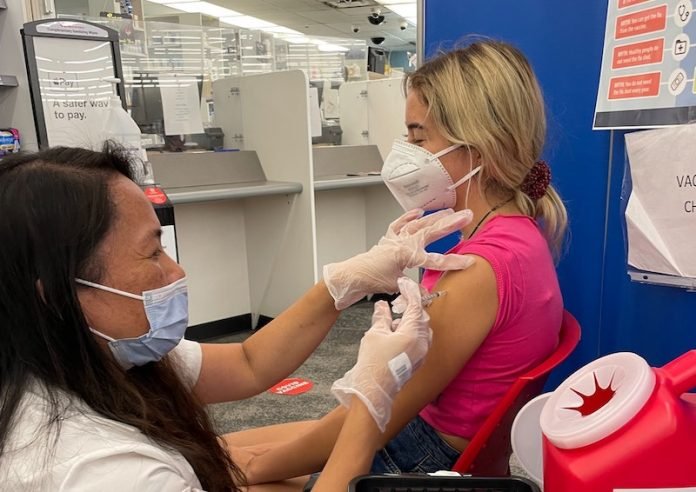
The first two vaccines created with mRNA vaccine technology—the Pfizer/BioNTech and Moderna COVID-19 vaccines—are arguably two of the most effective COVID vaccines developed to date.
In clinical trials, both were more than 90% effective at preventing symptomatic infection, easily surpassing the 50% threshold the Food and Drug Administration had set for COVID-19 vaccines to be considered for emergency use authorization.
While breakthrough infections have increased with the emergence of the delta and omicron variants, the vaccines remain quite effective at preventing hospitalizations and deaths.
In a new study from Washington University in St. Louis, researchers examined the quality of the immune response triggered by mRNA vaccines.
They found that the Pfizer vaccine strongly and persistently activates a kind of helper immune cell that assists antibody-producing cells in creating large amounts of increasingly powerful antibodies.
It also drives the development of some kinds of immune memory.
Known as T follicular helper cells, these cells last for up to six months after vaccination, helping the body crank out better and better antibodies.
Once the helper cells decline, long-lived antibody-producing cells and memory B cells help to provide protection against severe disease and death.
Further, many of the T follicular helper cells are activated by a part of the virus that doesn’t seem to pick up mutations, even in the highly mutated omicron variant.
The findings help explain why the Pfizer vaccine elicits such high levels of neutralizing antibodies and suggests that vaccination may help many people continue producing potent antibodies even as the virus changes.
The team says with the variants, especially delta and now omicron, they’ve been seeing some breakthrough infections, but the vaccines have held up very nicely in terms of preventing severe disease and death.
They think this strong T follicular helper response is part of the reason why the mRNA vaccines continue to be so protective.
Earlier this year, the team reported that, nearly four months after people had received the first dose of the Pfizer vaccine, they still had germinal centers in their lymph nodes that were churning out immune cells directed against SARS-CoV-2, the virus that causes COVID-19.
The researchers now are studying what happens after a booster dose and whether changes to T follicular helper cells could explain why people with compromised immune systems, such as those with HIV infection, do not mount a strong antibody response.
If you care about COVID, please read studies about old drug that can save your life from COVID-19, and findings that COVID-19 vaccines need to be shored up with a plant-based diet.
For more information about COVID, please see recent studies about when will the COVID pandemic end, and results showing vaccines may not prevent severe COVID-19 in these people.
The study is published in Cell. One author of the study is Philip Mudd, MD, Ph.D.
Copyright © 2021 Knowridge Science Report. All rights reserved.



